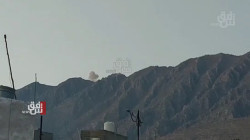Billions down the drain: The cost of Iraq's Kurdistan oil export ban

Shafaq News/ Iraq has lost more than $20 billion in potential revenue due to the prolonged suspension of crude exports from the Kurdistan Region, amid ongoing political and legal disputes.
Exports from the Region, estimated at around 450,000 barrels per day, have been offline since March 2023, when the International Chamber of Commerce ruled that Turkiye must stop transporting oil through the Kirkuk–Ceyhan pipeline without Baghdad’s consent.
At the center of the dispute is Article 112 of the Iraqi Constitution, which calls for joint management of oil resources. The federal government insists it holds exclusive rights over oil exports, while the Kurdistan Regional Government (KRG) argues the article permits the Region to manage its natural resources in cooperation with Baghdad.
This disagreement has undermined contracts signed by the KRG with international oil firms. Federal authorities have deemed these production-sharing agreements "incompatible with national law," claiming they bypass oversight institutions such as the State Oil Marketing Organization (SOMO) and the Federal Board of Supreme Audit.
A source from the Oil Ministry, speaking on condition of anonymity, claimed the core issue is, in fact, national sovereignty. "These exports must be regulated under federal frameworks. Otherwise, Iraq’s position within OPEC is weakened."
No Progress
Despite ongoing negotiations between the two governments, no breakthrough has been achieved. Baghdad demands legal compliance, while the KRG and its foreign partners continue to seek assurances that existing contracts will be honored.
In public statements, the Association of the Petroleum Industry of Kurdistan (APIKUR) has urged Baghdad to settle unpaid revenues and recognize the legal framework under which companies operate in Kurdistan, warning that sustained uncertainty may lead companies to scale back or exit operations.
A KRG official, in comments to Shafaq News, defended the Region’s policies. “We operate within our constitutional rights and have built a viable investment environment—without relying on federal funding.”
Exports Ready, Risks Remain
Technically, oil exports could resume at short notice. A source at the North Oil Company (NOC) confirmed that the Kirkuk–Ceyhan pipeline is functional, awaiting only federal authorization to restart shipments.
Oil Minister Hayan Abdul Ghani has publicly stated that Iraq intends to resume exports of at least 300,000 barrels per day from the north, under a unified marketing approach managed by SOMO.
However, restarting flows could complicate Iraq’s obligations to OPEC+, as bringing Kurdish oil back online may push production above its assigned quota.
The export freeze has removed nearly 500,000 barrels per day from global markets, limiting Iraq’s ability to benefit from high oil prices. Analysts note that the impasse is damaging Iraq’s credibility among international investors and within the energy industry.





